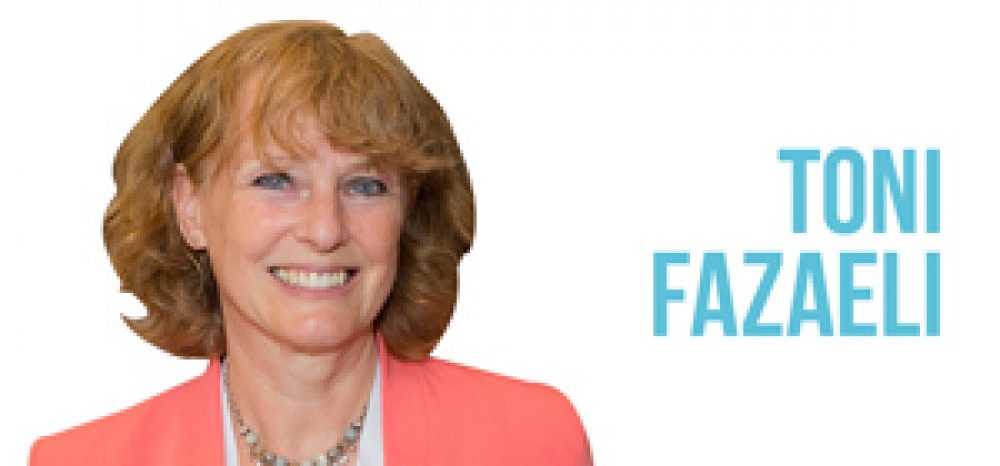Recommendations in the latest report from the Commons education select committee offer an opportunity for a parallel, if not unified, approach to raising standards of teaching and learning throughout our schools and colleges. It is an opportunity that must not be wasted.
The select committee’s report, ‘Great teachers: attracting, training and retaining the best’, calls for a new ‘college of teaching’, along the lines of the royal colleges and chartered institutions in other professions. It also recommends a thorough review of teacher training to ensure all staff have high-quality continuing professional development (CPD).
The further education and skills sector already has such a body in the Institute for Learning (IfL), and our experiences very much echo the findings of the committee. Moreover, our surveys on the effectiveness of CPD in colleges and providers over the past three years show how much effective CPD can be delivered through collaborative professional learning activities, created and led by teachers themselves and backed by IfL (or a similar college of teaching).
As well as working, this kind of CPD can be efficient and cost-effective. Teachers do need protected time to share and learn together, and the research evidence shows that this is wise investment.
When the committee searched for training models for schools, it looked – as such committees usually do – beyond the field of education. But there are models of excellence closer to home in the FE and skills sector that should be explored with a view to greater cooperation, collaboration and sharing.
There are political and strategic imperatives too, given the importance of 14 to 16-year-olds and 16 to18-year-olds increasingly learning across schools and colleges, and in academies and studio schools sponsored and housed within FE colleges.
Since April 1 2012, college lecturers with the professional status of Qualified Teacher Learning and Skills (QTLS) are entitled to teach in schools, giving those institutions an additional source of vocational and wider pedagogic skills, and opening up greater scope for schools and colleges to share the teaching of programmes for young people.
This supports a significant political theme for the government since it accepted all the recommendations in the Wolf review. The quality and accessibility of vocational education and training for young people is a massive opportunity, which, surprisingly, this select committee report did not touch on.
IfL has contributed to the development, so that teachers in FE are valued in our sector and in schools, and to the CPD of teachers in FE. Last year, IfL supported over 18,000 teachers’ and trainers’ CPD.
With others in the sector, IfL successfully campaigned for teachers and trainers with QTLS to be recognised as qualified teachers in schools as well as further education, for individuals to have status and career flexibility, and to enable colleges to develop more strategic partnerships with joint teaching in schools.
The further education sector itself is currently subject to a detailed review of professionalism, chaired by Lord Lingfield. IfL questions the recommendation in its interim report that initial teacher training should not be required by government policy but should be optional.
And we believe the thrust of the select committee report is about raising the bar so that having qualified teachers is the minimum, with no suggestion whatsoever that teachers being qualified is above a baseline minimum for schools and young people taught there.
We trust that the Lingfield review will consider closely the content of the select committee’s report before publishing its full report this summer.
The interim report was written in a climate of the coalition government calling for deregulation and, as such, it called for IfL to become an independent, voluntary and professional, rather than statutory, membership body for teachers and trainers.
Whatever shape we take, we have confidence in our future and the thousands of teachers and trainers who have chosen and will continue to choose to engage with IfL as their independent professional body.
But this article is not about banging the FE drum or any special pleading for particular organisations. It is about recognising the common educational landscape where schools, colleges, private training providers and indeed universities need to work together to achieve excellence, which starts with good teacher training and CPD.
Read together, the Lingfield review and select committee report suggest deep-seated contradictions in emerging government policies for schools and post-compulsory education and training.
Nevertheless, more positively, they do show the urgent need for very similar supportive structures, for a membership association for teachers, and for a strong emphasis on CPD throughout schools, FE and probably higher education, which needs careful consideration – and considered actions.
Toni Fazaeli,
Chief Executive, Institute for Learning (IfL)









Ms Fazaeli says
“Last year, IfL supported over 18,000 teachers’ and trainers’ CPD.”
But I£L had over 80,000 members last year, so they only helped about 20%. Not very impressive.
Ms Fazaeli also says.
“Whatever shape we take, we have confidence in our future and the thousands of teachers and trainers who have chosen and will continue to choose to engage with IfL as their independent professional body.”
What about the many tens of thousands that you’ve alienated with your attitude, those who see no point the I£L and those who are simply indifferent?
If the I£L can’t retain people when membership is mandatory then how do they imagine they’re going to retain anyone when membership becomes voluntary.
I am lead to believe there is a potential membership out there of about 200,000 but Ms Fazaeli talks in thousands, she should be talking in many tens of thousands or more. Clearly members are voting with their feet.
There’s more, but it’s really not worth the effort.